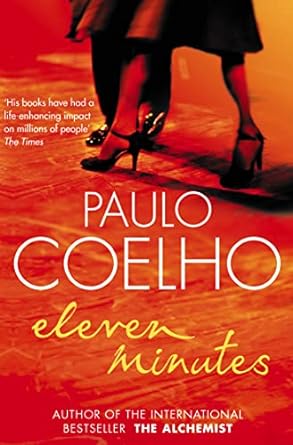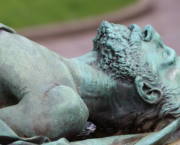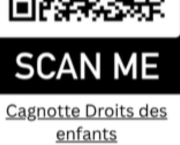
Comprendre l'amour en étant une prostituée - Paulo Coelho — Onze Minutes
 10 min
10 min
Comprendre l'amour en étant une prostituée - Paulo Coelho — Onze Minutes

En ce 8 mars, Jour de la Femme, je vais vous parler de l'histoire d'une prostituée brésilienne. Cette profession qui usuellement est vue d'un mauvais oeil est magnifiquemetn abordée dans le roman Onze Minutes de Paulo Coelho paru en 2003, aux éditions portuguaises Rocco.
Alors qu'on pourrait penser que la vie d'une prostituée est marquée par la souffrance et le rejet social, Paulo Coelho présente plutôt Maria comme un personnage réfléchi. Elle apprend de ses expériences dans le sombre univers de la prostitution, en ressortant grandie, évoluée, ayant découvert sa véritable identité et exploré sa sexualité.
Le roman est écrit à la troisière personne, avec un narrateur omniscient, mais il est parsemé d'extraits du journal de Maria, nous donnant un aperçu subjectif de sa vision personnelle et de son ressenti des événements.
J'ai le choix : je peux être une victime du monde ou une aventurière à la recherche de son trésor. La question est de savoir comment je regarde ma vie.
Maria se laisse-aller et est ouverte aux nouvelles expériences. Elle saisit toutes les opportunités, qu'elles semblent bonnes ou mauvaises. Sans jugement et voyant la profession de prostituée comme n'importe quel autre travail pour faire de l'argent, elle ne se questionne pas. Elle entreprend une courte carrière dans ce domaine sans hésiter, sans même s'interroger sur les aspects péjoratifs de la profession. Elle voit le sexe au travail comme une chose et l'amour, la sexualité avec un être aimé, comme tout autre chose.
D'un point de vue extérieur, Maria semble passer au travers d'une période difficile. Elle a quitté son foyer, le Brésil, pour se rendre en Suisse. S'y trouvant sans argent, cette profession est l'option la plus facile. Toutefois, son expérience est décrite et perçue par elle-même d'une manière si différente que cela nous fait réfléchir à ce que sont les épreuves de la vie. Nous pouvons considérer les épreuves comme douloureuses, comme des défis à surmonter, et cela nous semblera ardu, long et douloureux. Ou bien, nous pouvons accepter les événements de la vie et simplement les traverser paisiblement pour en tirer le meilleur parti.

Il était une fois...
une prostituée appelé Maria. Tel est le début du livre. En mêlant un conte de fées à un sujet aussi tabou que la prostitution, Paulo Coelho nous tient en haleine dès le début, car le roman est en quelque sorte un conte de fées moderne sur le plus vieux métier du monde. Il y est question de sexe, mais de manière poétique.
Au fil de ses aventures, Maria apprend à faire l'amour de bien des manières qui n'ont rien à voir avec le sexe proprement dit, qu'il s'agisse de regards ou de sensations. Désabusée de l'amour suite à ses expériences précédentes, c'est en se plongeant dans les méandres du sexe sans passion qu'elle comprend ce qu'est le contraire : l'amour.
Toute ma vie, j'ai compris l'amour comme une sorte d'esclavage consenti. C'est un mensonge : la liberté n'existe que lorsque l'amour est là. Celui qui se donne totalement, qui se sent libre, aime infiniment.
C'est la véritable expérience de la liberté : avoir la chose la plus importante au monde, sans la posséder.
Critique de l'éducation sexuelle
Tout au long du récit, Coelho en profite pour faire quelques critiques sociales cachées.
Lorsqu'elle a ses premières règles, Maria tente d'obtenir plus d'explications sur le sujet auprès de sa mère. Comme s'il s'agissait d'une chose normale, le livre nous partage la réponse de la mère.
Maria voulait savoir quel était le rapport entre le fait d'être une jeune femme et le sang qui coulait entre ses jambes, mais sa mère n'était pas en mesure de le lui expliquer. Tout ce qu'elle a pu dire, c'est que c'était normal et qu'à partir de maintenant, elle devrait porter une serviette pas plus grande qu'un traversin de poupée quatre ou cinq jours par mois.
Ne parlons même pas de la masturbation.
Enfant, elle avait pris l'habitude (de se masturber) et y trouvait un grand plaisir - jusqu'au jour où son père l'a surprise et lui a donné un coup de pied, sans autre explication.
Il est troublant de penser qu'aujourd'hui encore, dans certains pays, les choses se passent vraiment ainsi lorsqu'une jeune fille se pose des questions sur ses règles ou la masturbation...
Une critique des valeurs sociétales et de la misogynie dans certaines cultures est également abordée.
Tout ce qui comptait pour elle (sa mère), c'était que sa fille soit heureuse et riche - ou malheureuse et riche. « Ma chérie, il vaut mieux être malheureuse avec un homme riche qu'heureuse avec un pauvre. »
Comme si seul l'argent comptait au détriment du bonheur.
Non seulement les livres de Paulo Coelho sont connus pour être spirituels, mais je crois que si l'on regarde les détails, on peut y voir bien d'autres messages.
Le sens de la vie — Aucun Regret
Jusqu'à ce moment-là, les voyages, l'idée d'aller à l'autre bout du monde, tout cela n'avait été qu'un rêve pour Maria - et rêver est très confortable quand on n'a pas à réaliser ce que l'on a projeté. Nous traversons donc des périodes difficiles, nous connaissons des risques et des frustrations et, une fois âgés, nous pouvons toujours reprocher aux autres - à nos parents, de préférence, ou à nos conjoints, à nos enfants - de ne pas avoir réalisé nos désirs.
C'est ce qui motive Maria à continuer, à faire ces choix risqués, mais parce qu'elle en a envie. Elle est motivée par l'inattendu et ne veut pas avoir de regrets le moment venu, alors elle tente des choses et avance, même si c'est dans la mauvaise direction. Au moins, elle avance.
Les clients de Maria
Bien que l'on pourrait s'imaginer des clients de prostituées comme de vicieux pervers dégoutants, le roman met plutôt en lumière les problèmes généraux de la sexualité et de l'amour qui fait défaut dans nos sociétés.
Ces hommes ne font que ce qu'on leur a appris : le sexe, c'est jouir et tenter d'impressionner sa partenaire avec sa virilité, sans se soucier de son véritable plaisir. Ils s'ennuient dans leur vie et ne voient le sexe que comme un divertissement, une source de détente. Aller boire un verre avec des collègues, jouer au football ou aller relâcher la pression à l'intérieur d'une prostituée, c'est du pareil au même, une activité pour se changer les idées et oublier la grisaille de la vie quotidienne.
Il semblerait que certains hommes se rendent chez les prostituées non pas pour du sexe, mais pour discuter, pour être écoutés, pour être en bonne compagnie. Maria se rend compte à quel point ses clients sont maussades, malgré leur statut d'hommes blancs riches ayant accès à tout ce qu'ils veulent pour être heureux.
Paulo, tu nous fait réfléchir!
Lire l'œuvre de Paulo Coelho offre à la fois du divertissement et un léger défi philosophique. Son style littéraire simple et son vocabulaire accessible rendent ses réflexions accessibles à tous. Étant en train d'apprendre le portugais, je prévois pouvoir lire la version originale de ses œuvres pour découvrir de nouvelles subtilités dans son écriture. Je vous reviendrai une fois que j'aurai lu la version originale portugiase afin d'analyser et d'explorer les différences narratives linguistiques.
En attendant, je vous souhaite une bonne lecture !









 English
English
 Français
Français
 Deutsch
Deutsch
 Italiano
Italiano
 Español
Español



 Contribute
Contribute













 You can support your favorite writers
You can support your favorite writers





